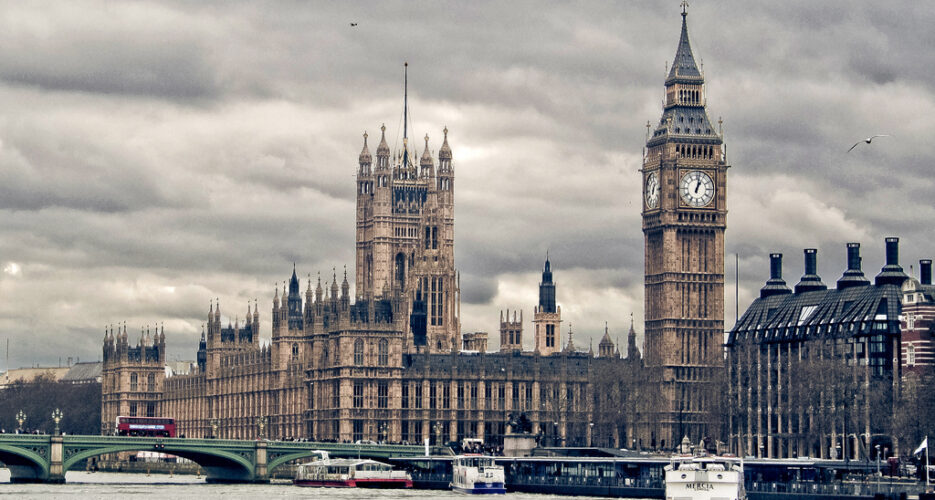Seventy percent of UK parliamentarians are in favor of the British Broadcasting Corporation (BBC) implementing a North Korea targeted broadcast service, according to a poll of 150 MPs published on Wednesday.
The poll, conducted by the European Alliance for Human Rights in North Korea (EAHRNK), canvassed the opinions of 150 parliamentarians from England, Wales, Scotland and Northern Ireland.
“A strong showing of parliamentary support for a BBC World Service in the Korean language was greatly needed to hammer home the importance of such a service,” Michael Glendinning, the director of EAHRNK, was quoted as saying in a press release.
The Labor Party registered the highest level of approval with 78 percent backing the service, 31 percent of those in the highest level of approval. A further 5 percent opposed the plan and 16 percent registered “don’t know” as their answer.
The Conservative Party registered a lower approval rating of 64 percent with only 27 percent “strongly” supporting a North Korea service, 9 percent opposing it and a quarter of respondents listing “don’t know” as their response.
The Scottish National Party (SNP) showed similarly lower results with 56 percent approving and 18 percent opposing, while the remaining minority parties registered a 100 percent approval rating, with 25 percent strongly supporting the service.
“With the BBC and a majority of parliamentarians fully on board, the onus is now on the Foreign Secretary and FCO to back the package that will be presented to them by the BBC in due course,” Glendinning was quoted as saying in Wednesday’s press release. The FCO stands for Foreign Commonwealth Office, which would need to approve of the service.
The UK government had previously announced in 2015 that it intended to spend 85 million pounds each year by 2017-18 “to build the global reach of the World Service and increase access to news and information.”
The BBC had also confirmed to NK News in November that a short-wave radio service to North Korea had been planned to be launched in either 2016 or 2017. However, at the time, there was no explicit commitment and the BBC could still reject the plans based on cost.
“Practically speaking, there aren’t many steps left for a BBC Korea service to become a reality,” Glendinning told NK News on Wednesday.
“However, there will be some key barriers that remain. In particular, the cost-benefit of the service with regards to punishment of those listening to the service and proving that jamming won’t inhibit a service.”
Recent developments in North Korea have shown that the North Korean government has had greater successes in sustaining radio jamming operations against existing external media services, similarly delivering programming via short-wave frequencies.
The Unification Media Group, which has been broadcasting short-wave radio programs into North Korea since 2005, were reported to have experienced sustained interruptions to their services since the beginning of March. The interruptions were attributed to the North Korean government.
“This is the strongest signal jam in the last few years. As the regime is pushed into further isolation by the strongest round of sanctions yet, they have become concerned that the residents will be awakened by exposure to outside information,” the Unification Media Group President, Lee Gwang-baek, told the Daily NK in their report on the subject in March.
EAHRNK, which has consistently pushed for the BBC Korean service, believes that growing support from MPs and continued efforts by civil groups will force the FCO to act and implement the service.
“The BBC will no doubt work with civil society actors to make a robust case. At that point, the Foreign Secretary will have to listen to the BBC and his own party’s MPs and support a BBC Korea service,” Gledinning told NK News.
Seventy percent of UK parliamentarians are in favor of the British Broadcasting Corporation (BBC) implementing a North Korea targeted broadcast service, according to a poll of 150 MPs published on Wednesday.
The poll, conducted by the European Alliance for Human Rights in North Korea (EAHRNK), canvassed the opinions of 150 parliamentarians from England, Wales, Scotland and Northern Ireland.
Try unlimited access
Only $1 for four weeks
-
Unlimited access to all of NK News: reporting, investigations, analysis
-
Year-one discount if you continue past $1 trial period
-
The NK News Daily Update, an email newsletter to keep you in the loop
-
Searchable archive of all content, photo galleries, special columns
-
Contact NK News reporters with tips or requests for reporting
Get unlimited access to all NK News content, including original reporting, investigations, and analyses by our team of DPRK experts.
Subscribe
now
All major cards accepted. No commitments – you can cancel any time.







